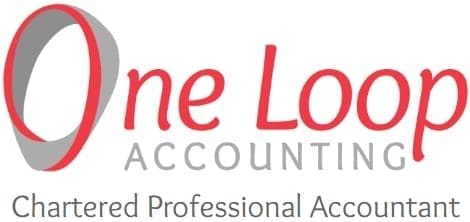CANADA’S COVID-19 ECONOMIC RESPONSE PLAN – KEY POINTS FOR BUSINESSES AND INDIVIDUALS
Since the beginning of March, restrictions and measures related to COVID-19 have rapidly escalated. While the first stages focused on public health and safety, in very short order, businesses and personal finances began to be affected. It is clear that these challenges will become worse before they get better. In an effort to combat these effects, the Government of Canada released a series of financial measures in mid-March.
This document summarizes selected government comments up to March 18, 2020.
INDIVIDUALS
Tax Return Due Date Deferral: The personal tax filing due date will be deferred until June 1, 2020. However, those expecting refunds or benefits (such as the GST/HST credit, Guaranteed Income Supplement and Canada Child Benefit) should file as early as possible. The government release encourages Canadians not to delay their filings in order to ensure their income-tested benefits are accurately computed.
Tax Payment Deferral: Taxpayers may defer, until after August 31, 2020, the payment of income tax amounts that become owing on or after March 18, 2020 (also including installments) and before September 2020. The government documents indicate that payment will be deferred “until after August 31, 2020”, which seems to imply payment will be due on September 1. No interest or penalties will accumulate on these amounts during this period.
Individuals Without Paid Sick Leave: For Canadians without paid sick leave (or similar workplace accommodation) who are sick, quarantined or forced to stay home to care for children, the government is:
- Waiving the one-week waiting period for those in imposed quarantine that claim Employment Insurance (EI) sickness benefits, effective March 15, 2020.
- Waiving the requirement to provide a medical certificate to access EI sickness benefits.
- Introducing the Emergency Care Benefit providing up to $900 bi-weekly, for up to 15 weeks (comparable to EI sickness benefit). This benefit would provide income support to:
- workers, including the self-employed, who are quarantined or sick with COVID-19 but do not qualify for EI sickness benefits;
- workers, including the self-employed, who are taking care of a family member who is sick with COVID-19, such as an elderly parent, but do not quality for EI sickness benefits; and
- parents with children who require care or supervision due to school closures, and are unable to earn employment income, regardless of whether they qualify for EI or not.
Application for the Benefit will be available in April 2020, and require Canadians to attest (and continue to attest every two weeks) that they meet the eligibility requirements. Individuals can apply through CRA’s MyAccount, their My Service Canada Account, or by calling an automated toll-free number not yet released.
Longer-Term Income Support
- An Emergency Support Benefit will provide up to $5.0 billion in support to workers who are not eligible for EI and who are facing unemployment. The individual amounts and process will be disclosed shortly.
- Implementing changes to the EI Work Sharing Program, which provides EI benefits to workers who agree to reduce their normal working hour as a result of developments beyond the control of their employers, by extending the eligibility of such agreements to 76 weeks, easing eligibility requirements, and streamlining the application process.
- Low/Modest Income Individuals
- A one-time special payment by early May 2020 through the Goods and Services Tax credit (GSTC) will be made. This will double the maximum annual GSTC payment amounts and result in an average boost to income for those benefitting by close to $400 for single individuals and close to $600 for couples.
- The maximum annual Canada Child Benefit payment amounts would be increased by $300 per child for the 2019-20 benefit year. This will be added to the May, 2020 benefit cheque.
- Canadians Abroad: The Emergency Loan Program for Canadians Abroad will provide the option of an emergency loan to Canadians in need of immediate financial assistance to return home or to temporarily cover their life-sustaining needs while they work toward their return. Each application will be assessed according to their specific situation and needs. This emergency assistance is a repayable loan. Eligible Canadians currently outside Canada and needing help to return home can contact the nearest Government of Canada office (https://travel.gc.ca/assistance/embassies-consulates) or Global Affairs Canada’s 24/7 Emergency Watch and Response Centre in Ottawa at +1 613-996-8885 (collect calls are accepted where available) or email [email protected].
- Students: A six-month interest-free moratorium on the repayment of Canada Student Loans for all individuals currently in the process of repaying these loans will be provided.
- Minimum RRIF Withdrawals: The required minimum withdrawals from Registered Retirement Income Funds (RRIFs) will be reduced by 25% for 2020. Similar rules would apply to individuals receiving variable benefit payments under a defined contribution Registered Pension Plan.
BUSINESSES
Tax Payment Extension: Businesses may defer, until after August 31, 2020, the payment of income tax amounts that become owing on or after March 18, 2020 and before September 2020. This relief would apply to tax balances due, as well as instalments. No interest or penalties will accumulate on these amounts during this period.
Other Payment and Filing Extensions: No comment was made about changing the filing and payments dates for payroll, GST/HST, and other non-income tax items.
CRA Audit Activity: CRA will not contact any small or medium businesses to initiate any post assessment GST/HST or Income Tax audits for the next four weeks. For the vast majority of businesses, the CRA will temporarily suspend audit interaction with taxpayers and representatives.
Liaison Officer Service: The Liaison Officer service is now available over the phone and will be customizing information by ensuring small businesses are aware of any changes such as filing and payment deadlines, proactive relief measures, etc.
Payroll Subsidies: The government is proposing to provide eligible small employers a temporary wage subsidy for a period of three months. The subsidy will be equal to 10% of remuneration paid during that period, up to a maximum of $1,375 per employee and $25,000 per employer. Businesses will benefit immediately from this support by reducing their remittances of income tax withheld on their employees’ remuneration. Employers benefiting from this measure will include corporations eligible for the small business deduction, as well as non-profit organizations and charities.
OTHER FILINGS AND ADMINISTRATION
Trust Filing Due Date Deferral: For trusts having a taxation year ending on December 31, 2019, the return filing due date will be deferred until May 1, 2020.
T3 Slips Submission Date: No specific statement was made regarding the deadline for filing T3 slips reporting income taxable to the trust beneficiaries.
Other Returns: Many taxpayers are required to file other tax and information returns. No mention was made of these, including partnership returns and NR4 reporting slips.
EFILE Signatures: In order to reduce the necessity for taxpayers and tax preparers to meet in person, effective immediately the CRA will recognize electronic signatures as having met the signature requirements of the Income Tax Act, as a temporary administrative measure. This provision applies to authorization forms T183 or T183CORP.
FINANCIAL ASSISTANCE
Individuals: Canada’s large banks have confirmed that this support will include up to a 6-month payment deferral for mortgages, and the opportunity for relief on other credit products. Banks have affirmed their commitment to working with customers to provide flexible solutions, on a case-by-case basis, for managing through hardships caused by recent developments. This may include situations such as pay disruption, childcare disruption, or illness.
Businesses
- The Business Credit Availability Program will allow the Business Development Bank of Canada and Export Development Canada to provide more than $10 billion of additional support, largely targeted to small and medium-sized businesses. The near-term credit available to farmers and the agri-food sector will also be increased through Farm Credit Canada.
- The Office of the Superintendent of Financial Institutions (OSFI) announced it is lowering the Domestic Stability Buffer by 1.25% of risk-weighted assets, effective immediately. This action will allow Canada’s large banks to inject $300 billion of additional lending in to the economy.
- For Exporters: The Minister of Finance would now be able to determine the limit of the Canada Account in order to deal with exceptional circumstances. The Canada Account is administered by Export Development Canada (EDC) and is used by the government to support exporters when deemed to be in the national interest.
- Interest Rates: The Bank of Canada cut the prime interest rate to 0.75%. Other banks have also reduced rates.
Other Funding
- Indigenous Community: $305 million for a new distinctions-based Indigenous Community Support Fund will be provided to address immediate needs in First Nations, Inuit, and Métis Nation communities.
- Homelessness: The Reaching Home initiative will be provided with $157.5 million to continue to support people experiencing homelessness during the COVID-19 outbreak. The funding could be used for a range of needs such as purchasing beds and physical barriers for social distancing and securing accommodation to reduce overcrowding in shelters.
- Domestic Abuse Shelters: Women’s shelters and sexual assault centers will receive $50 million to help with their capacity to manage or prevent an outbreak in their facilities.
CLOSING
Many of the measures listed above have only been announced recently (March 18, 2020) and are noted as requiring Royal Assent. In recent public comments, it was indicated that the opposition parties have promised their support to move these measures quickly, therefore, we can presumably expect draft legislation in the short term.
Over the next days and weeks, the specifics on these programs will be released. Most of the details for these initiatives will be released on one of these four webpages:
General: https://www.canada.ca/en/public-health/services/
diseases/2019-novel-coronavirus-infection/canadas-reponse.html
CRA: https://www.canada.ca/en/revenue-agency/campaigns/
Travel:https://travel.gc.ca/assistance/emergency-info/financial-assistance/covid-19-financial-help
Employment and Social Development Canada: https://www.canada.ca/en/employment-social-development/corporate/notices/coronavirus.html
As the situation develops further, there may be additional government measures, or modifications to those already announced.
Disclamer: The preceding information is for educational purposes only. As it is impossible to include all situations, circumstances and exceptions in a newsletter such as this, a further review should be done by a qualified professional.
No individual or organization involved in either the preparation or distribution of this letter accepts any contractual, tortious, or any other form of liability for its contents or for any consequences arising from its use.

